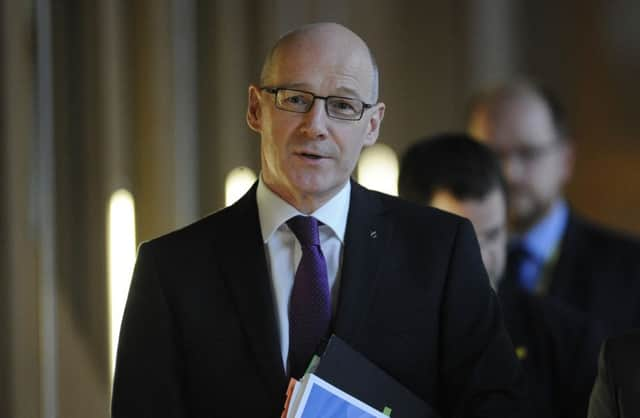Between the lines: Swinney’s false business case


Just like the Chancellor, Swinney justified the move on levelling the playing field for first-time buyers, who it is said are being squeezed out of home ownership by buy-to-let investors. That may be true of London and the south-east of England but not of Scotland. Here, it is socio-economic reasons that is making things so difficult for first-time buyers.
So in helping first-time buyers by, possibly, just a little bit, what does Swinney risk losing as a consequence? Well, for a start, the new levy is another knock for aspiration in a country that sorely needs it. By showing confidence in the Scottish market, buy-to-let investors have increased the amount of properties available to rent at a time when local authorities are without funds to build council housing. Talk about cutting your nose to spite your face.
Advertisement
Hide AdAdvertisement
Hide AdIt could be argued that the levy only brings Scotland into line with the rest of the UK. But the LBTT rates already put Scotland at a disadvantage and many of the overseas investors, who up to now have kept faith with Scotland, will be even more likely to consider south of the Border as a more profitable location.
Had Swinney not yielded to temptation to follow in the footsteps of Osborne, the taxation balance between England and Scotland may have been restored. But he didn’t and a £500,000 flat in Glasgow, bought for the rental market, will continue to incur a substantially greater tax charge than for a similar-priced property in Manchester.
Buy-to-let landlords are in the main not the get-rich-quick types that some politicians believe them to be. In fact they are a cross between cautious savers and those prepared to accept the ups and downs of the stock market. Many of the more recent entrants have been mature men and women, not wealthy, but suddenly finding themselves with a bit of cash following the death of a parent or through a pension lump sum.
If the new rules mean the Scottish Government takes in less, overall, from taxation of buy-to-let purchases then Swinney will have the excuse that his purpose was not to raise money but to help first-time owner-occupiers. He might get away with that among voters but home and overseas investors will surely see the latest levy as yet more evidence that Scotland is a country lukewarm toward business – whether it be housing or most other privatised sectors of the economy.
l David Alexander is managing director of DJ Alexander Lettings.